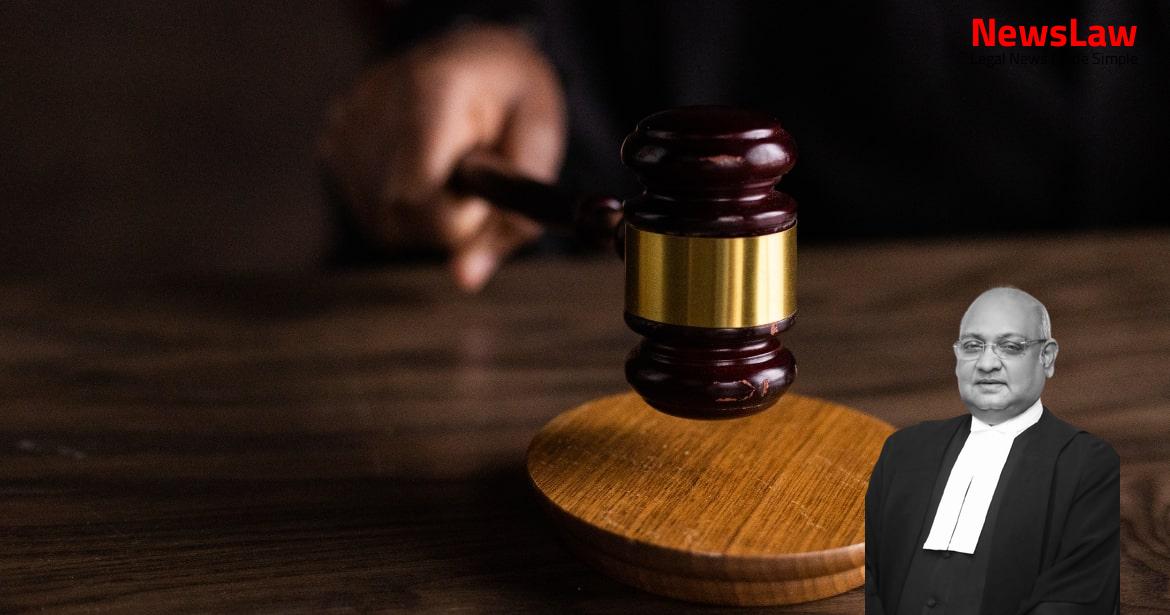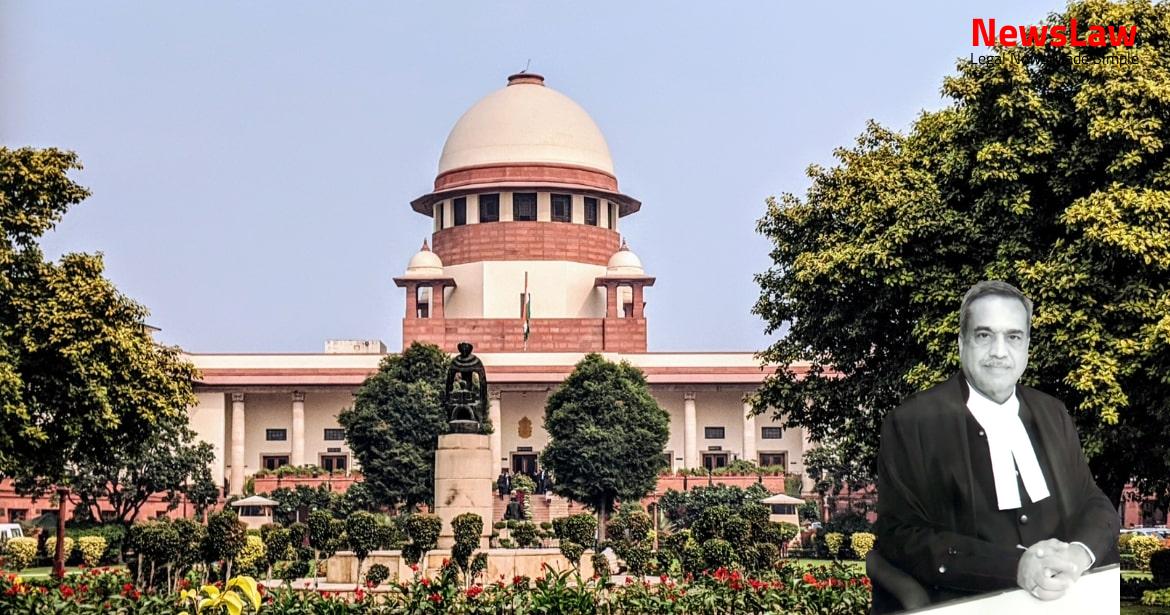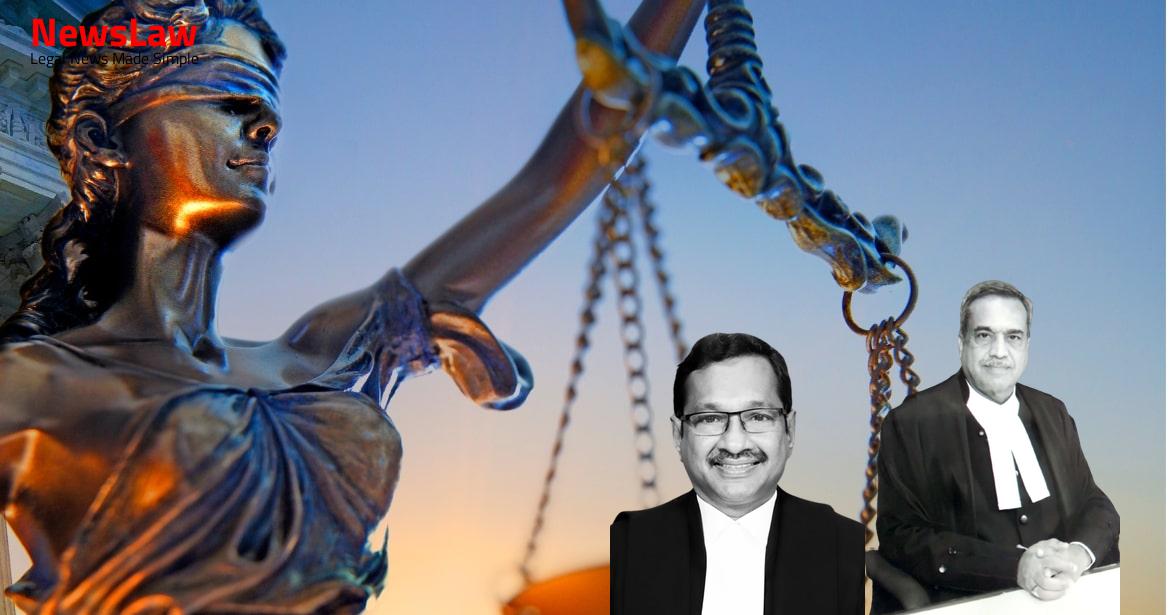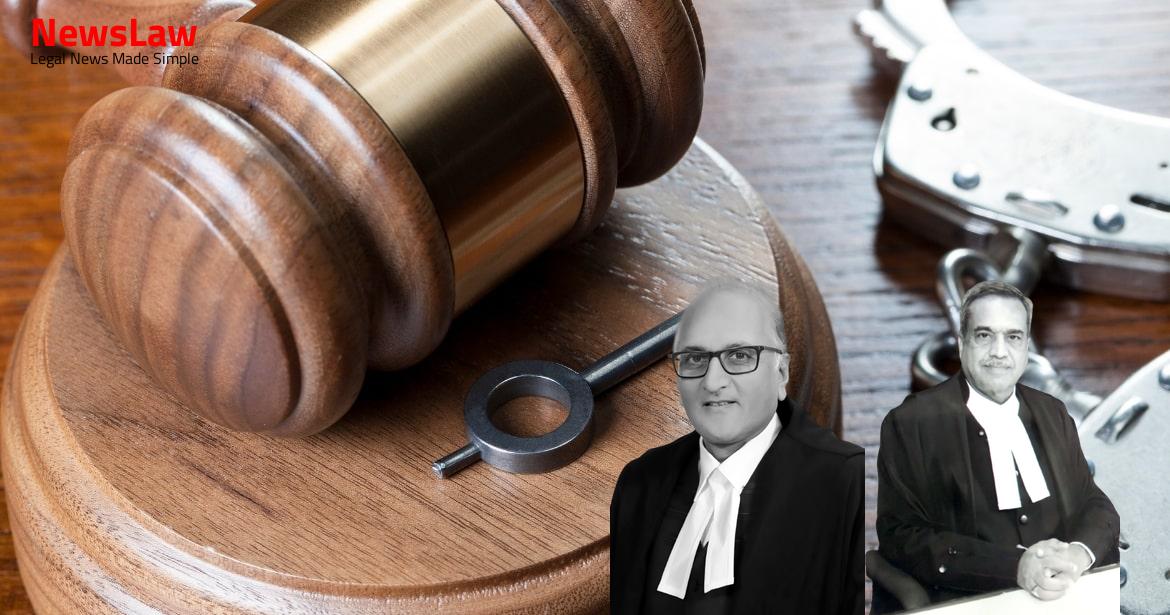In the legal battle between Manicka Naicker and Munisamy Naicker & Ors., the Supreme Court of India delivered a significant judgment affirming the appellant’s rights as the legal representative. The case pertained to a property dispute and the application of the Hindu Succession Act. The Court’s decision clarified the legal position on executing a decree in such familial conflicts, setting a precedent for future cases involving similar issues.
Facts
- Manicka Naicker died in 1971, leaving behind his wife Umadevi.
- Umadevi filed a suit for partition claiming half share in the property.
- The suit was decreed on April 7, 1989, and became final.
- Before marrying Umadevi, Manicka Naicker was previously married to Valliammal and had a child, Munisamy Naicker.
- Umadevi sought execution of the decree in 1999 based on a Will dated July 16, 1999, which the appellant claimed as her legal representative.
- The respondent contested, alleging the Will was forged and that as the son of a sister, the appellant is not a legal heir under the Hindu Succession Act, 1956.
- The Executing Court ordered possession of the property to be given to the appellant as Umadevi’s legal representative.
- Evidence was presented including attestation by witnesses and the scribing of the Will.
- The respondent presented witnesses in the case.
- The High Court’s order of November 27, 2007 in a revision petition under Section 115 of the CPC is being challenged.
- The Executing Court held that the appellant, as the legal representative of the deceased Umadevi, is entitled to execute the decree.
- The Executing Court found that no one else came forward other than the appellant to continue the execution of the decree as the legal representative of Umadevi.
- The High Court held that the Executing Court is competent to determine the validity of the Will, and a legatee under a Will can be considered a legal representative for seeking execution of the decree.
- The High Court, however, noted suspicious circumstances surrounding the execution of the Will, including Umadevi being driven out of her house by her stepson and staying with her sister for 20 years before the Will was executed.
- The High Court, in its revisional jurisdiction, interfered with the findings of fact by the Executing Court regarding the execution of the Will, which was based on evidence presented by the parties.
Also Read: Interpretation of Mandatory Statutory Time Limits
Analysis
- The conflicting claims of legal representatives can be decided in execution proceedings as per Rule 5 of Order XXII of the Code.
- The High Court exceeded its jurisdiction by acting like a first court of appeal in a revision.
- The appellant presented an attesting witness and the scribe of the Will as evidence.
- The appellant, being the son of the deceased’s sister, is the sole claimant to the estate as per the Will.
- The appellant, as the legal representative, is entitled to execute the decree.
- None of the conditions of Section 115 of the Code were met by the High Court to set aside the order of the Executing Court.
- The appellant took over the execution proceedings after the deceased’s demise, without any other rival claimant as the legal representative.
- The Executing Court correctly established the appellant as the legal representative eligible to execute the decree.
- The High Court’s decision to set aside the Executing Court’s order is not legally justifiable.
- In the said case, the High Court concluded that the inquiry under Order XXII Rule 5 of the Code was of a summary nature.
- The Madras High Court’s judgment in Kadir v. Muthukrishna Ayyar was approved by this Court.
- The Full Bench of the Punjab & Haryana High Court specifically determined the right of the appellant to be impleaded as the legal representative in that case.
- The judgment in Suresh Kumar Bansal v. Krishna Bansal & Anr. was considered by this Court as well.
- In the case of Jaladi Suguna (Deceased) through LRs. v. Satya Sai Central Trust & Ors., it was clarified that the determination of the legal representative under Order XXII Rule 5 of the Code is limited to the purpose of estate representation and case adjudication.
- The judgment in Mohinder Kaur was referenced and endorsed by this Court in Dashrath Rao Kate v. Brij Mohan Srivastava.
- Legal representatives are impleaded only for the suit’s purposes, as reiterated by this Court in Daya Ram & Ors. v. Shyam Sundari & Ors., where it was emphasized that the decision with the impleaded legal representatives on record will bind the entire estate, including individuals not brought on record.
- The question of whether a decision under Order XXII Rule 5 of the Code would constitute res judicata in a subsequent suit was examined in Mohinder Kaur & Anr. v. Piara Singh & Ors.
- In the case of V. Uthirapathi v. Ashrab & Ors., this Court held that the normal principle of bringing legal representatives on record within a specific period before a decree is passed does not apply to cases of death in execution proceedings of the decree-holder or judgment-debtor.
- Subordinate court’s order can only be interfered with if it exceeds its jurisdiction or fails to exercise its jurisdiction as vested by law
- Interference can also occur if the court acts illegally or with material irregularity in exercising its jurisdiction
- Differing views from the High Court on the same facts do not automatically confer jurisdiction to interfere with the subordinate court’s order
Decision
- The order passed by the High Court has been set aside.
- The order of the Executing Court has been restored.
- The appeal has been allowed.
Also Read: Challenging Legal Analysis in Acquittal Reversal
Case Title: VARADARAJAN Vs. KANAKAVALLI AND ORS. (2020 INSC 75)
Case Number: C.A. No.-005673-005673 / 2009



